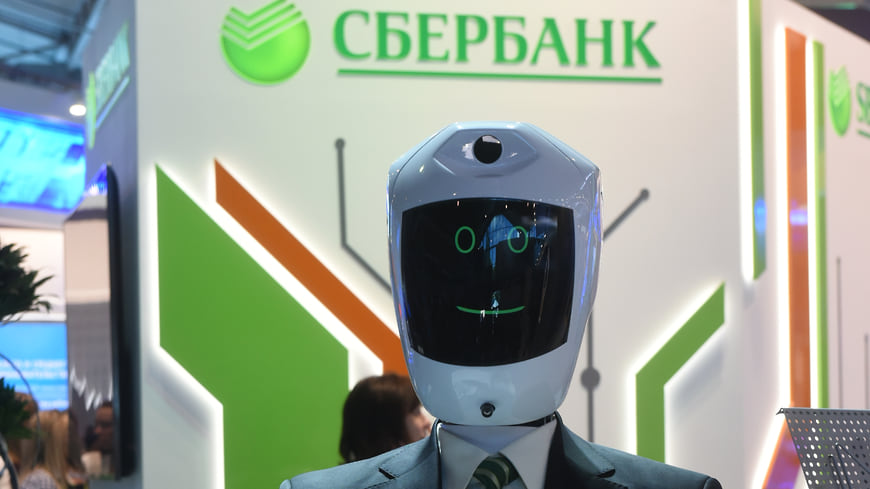AFK Sistema is in talks to sell its stake in Russia’s largest microelectronics producer, Element Group, to Sberbank, Kommersant has learned. Market sources describe such a move as logical: it would allow Sber to build a full production cycle, complementing its stake in Aquarius, a manufacturer of computers and IT equipment. For Sistema, the deal would provide an opportunity to exit the asset and reduce its debt burden, which has exceeded RUB 1.4 trn. Sources do not rule out that this transaction could be the first step toward consolidation of the entire Russian microelectronics sector.

Photo: Alexander Koryakov, Kommersant
Sber’s acquisition plans were confirmed by a government source and an electronics industry insider. Two other market participants told Kommersant they had also heard of the pending deal, which could close in the near term. Sistema, Sber, and Element declined to comment.
“After acquiring Aquarius together with S8 Capital, Sber has been considering ways to consolidate the microelectronics market and build a national champion,” said a banking market source. Sber has previously shown interest in semiconductor manufacturing, and in 2023 a group of Russian engineers from Intel joined the bank.
For Sistema, divesting Element could help ease its growing debt load, including obligations to Sber itself, which now approach RUB 1.5 trn.
Element Group was established in 2019 through the merger of Rostec and Sistema assets in microelectronics. At launch, Rostec held 49.99% and Sistema 50.01%. The group unites more than 30 enterprises—including Mikron, the Research Institute of Electronic Technology, and the Progress Institute—and accounts for more than 50% of Russia’s electronic component production. Its products include integrated circuits, semiconductors, power electronics, modules, housings, and electronic equipment used in banking, SIM, and transport cards.
Element went public on the SPB Exchange in May 2024 and obtained a secondary listing on the Moscow Exchange the following month. Shares initially priced at RUB 0.2236 traded at around RUB 0.13 as of September 18, 2025. Free float stood at 11.2% at year-end 2024.
Financially, Element reported a 19% year-on-year revenue drop in H1 2025, to RUB 16.1 bn. Net profit fell 47.3% to RUB 2 bn, EBITDA decreased 36% to RUB 3.6 bn, and the EBITDA margin contracted to 22.3% from 28.2%. Net debt/EBITDA rose to 0.7x from 0.2x a year earlier.
Sistema itself is 49.2% owned by Vladimir Yevtushenkov, 15.3% by his son Felix, 32.6% in free float, and 2.9% held by Sistema group companies, board members, and management. In H1 2025, revenue rose 7.3% year-on-year to RUB 616 bn, while adjusted OIBDA grew 10.5% to RUB 178.8 bn. Net debt increased 0.4% in six months to RUB 1.4 trn.
According to Anatoliy Dmitrienko, Deputy CEO of PSK-Solutions, the deal fits squarely into Sber’s strategy. “To reduce costs and dependence on imported equipment needed for large language model (LLM) development, it is strategically important for Sber to have its own microelectronics production,” he said, adding that it would provide not only a commercial edge but also serve state-level goals in AI development.
Evgeny Borisov, partner at investment company Kama Flow, agreed: “Sistema’s priority is reducing debt pressure. High rates have already created systemic problems in some of its assets, such as Segezha Group. Deleveraging makes sense, especially since microelectronics is a sector requiring substantial CAPEX.” He estimated the deal at around RUB 20 bn. Dmitrienko put the figure closer to RUB 24 bn.
Analyst Anna Avakimyan of RegBlok noted that acquiring Element would give Sber a foundation for hardware development. Combining hardware and software would enable the bank to bring new tech products to market. She valued Element at 0.8x–1.5x book value, or RUB 40–58 bn, implying 50% of the shares could be worth RUB 15–28 bn.
A source familiar with the talks said that if the industry consolidates, Element—currently the only publicly traded microelectronics asset—could be delisted, as authorities increasingly see the sector as too strategic to remain public.
Arseny Brykin, head of the Basis consortium of 15 software and electronics firms, added: “If Sber becomes the investor, the company could achieve synergy by meeting both state objectives and commercial goals. Microelectronics is a strategic asset—without it there will be no high-tech industry or technological sovereignty. Sber’s assets in electronics and microelectronics would complement each other, and their ecosystem would have applications far beyond AI.”
Alexey Zhabin
Kommersant, September 18, 2025
This article has been translated to English by PSK‑Solutions LLC. The original version in Russian is available here.
This is an unofficial translation provided for informational purposes only. All rights to the original content belong to the original author(s), and no copyright infringement is intended. While we strive for accuracy, slight discrepancies may occur in the translated version.